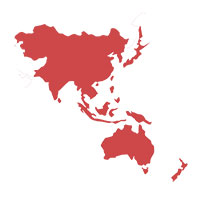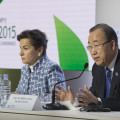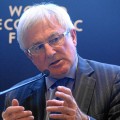The Language of Climate Negotiations
Anna Heyward | December 10, 2015.
COP21 is an acronym; shorthand for the 21st Conference of the Parties to the UNFCCC. Another acronym, otherwise known as the United Nations Framework Convention on Climate Change.
Anyone following the climate negotiations in Paris has most likely felt confused at least once, if not isolated by the language used. Spectators are in danger of drowning in the acronym soup of the IPCC, ADP, INDCs and GCF.
As the talks near to a close, the draft text which still consists of many blank spaces, brackets and contradictions needs to be whittled down. Getting over 190 countries to agree on anything is difficult though, let alone on one of the most politically divisive issues of the times.
The way people speak at these climate talks is necessarily jargonistic, and full of of political rhetoric. Yet, as the text is refined and adjusted in back rooms, the language used in public becomes more pointed and revelatory. The Verb has taken a closer look at the statements presented during the High-Level Segment.
Listening to the language countries use in public can reveal the political will behind their agenda. It gives an idea of each party’s commitment to a strong Paris treaty. But discerning a country’s true motivations often requires reading between the lines – analysing both what isn’t being said, and the kinds of words they’re using, rather than what they are ostensibly saying.
Fairness, obligations and finance are common themes in Paris. Each are expressed in different moods of the English language – imperative, subjunctive, and indicative – and each are used disproportionately by various countries according to what they need and want.
Vulnerable countries tend to speak in the imperative tense. The Zambian environmental minister instructed delegates to: “Recognise that it is a statement of fact that our countries are at different levels of development.”
Almost every one of these parties sought to minimise their ability to contribute on par, using qualifying words to underscore the embattlement they face. Suliman Kaloo, of Syria, said that “despite everything, we will continue our efforts,” after making references to exponential dust increases, and ground oil in the water in Syria.
“Despite economic woes, Cameroon is going above and beyond on this issue,” said Environment Minister Pierre Hele. Such expressions reflect the importance of the “common but differentiated responsibility” principle and expectation of US$100 billion financing commitment from wealthy countries for developing states.
The more delicate subjunctive has been employed by developed countries with commonplace phrases like: “It will be essential that we work together to ensure the safety of all” and “I would like to point out that our country is based on the export of oil”.
Countries wishing to avoid the idea of historical responsibility tend to locate their speech in the future tense where they add notes of aspiration and optimism to their speech. Such language is designed to disengage from and diffuse responsibility – to expand, rather than narrow, the question of burden.
Language is the way we negotiate, and the way in which laws are made—though around the conference, you’ll hear many times over that actions are more valuable than words.
One of the necessary parts of COP21 is accepting the fragile unity in which people come together to speak, for a finite period, during which goals might or might not be reached. Just a single sentence, if agreed to in Paris, could be the difference between survival or inundation for some of the world’s most vulnerable nations. For these two weeks, language itself is action.













comment